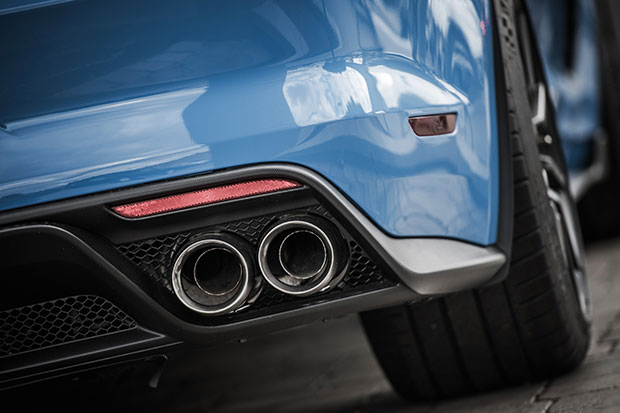7 January 2019
Government launches review into WLTP-based company car benefit-in-kind tax and VED
The government has launched a review into the impact of the WLTP on company car benefit-in-kind tax and Vehicle Excise Duty.

- What is the review? HM Treasury’s review is about potential changes to vehicle taxes.
- Why is this review taking place? The introduction of WLTP means that CO2 figures for cars will change and, as a result, so will vehicle taxes.
- What was the outcome of the review? Four key areas of concern were addressed. The fleet industry and other bodies need to respond to the government’s four questions by the 17th February 2019.
HM Treasury says that to ensure the government “strikes the balance between protecting consumers and meeting our climate change commitments”, the review will consider whether vehicle tax changes are required once Worldwide harmonised Light vehicles Test Procedure (WLTP)-based carbon dioxide (CO2) emission figures are adopted as the basis of motoring taxation from April 2020.
The review document asks four questions, which the fleet industry is being asked to respond to them by Sunday, February 17, 2019.
The review says that initial evidence provided by manufacturers suggests that more than 50% of cars will see an increase in CO2 emissions from the old New European Driving Cycle (NEDC) testing procedure to WLTP of between 10% and 20% thus resulting in an increased tax liability.
The review, which was signalled in the October 2018 Budget, makes clear that cars registered before April 2020 will maintain their current tax treatment. Other policies linked to CO2 emissions - such as capital allowances - are not being considered in the review.
The review also will not consider the implications of using the European Union’s computer simulation tool, known as CO2MPAS, used to convert WLTP figures back to an equivalent NEDC figure as is happening during the current transitional period to April 2020.
Any changes to company car benefit-in-kind tax and Vehicle Excise Duty are likely to relate to their CO2 banding thresholds as the consultation document says: “The government believes that the fundamental structure of Vehicle Excise Duty and company car tax is appropriate, including the diesel supplement and timeframe for introduction of future company car tax rates.”
The review document also makes clear that tax incentives linked to ultra-low emission vehicles will remain in place. For example, on company car benefit-in-kind tax, the government will introduce five new bands for plug-in hybrids which emit 1-50g/km of CO2 from 2020-21, as already announced, to distinguish between those models which can drive greater distances in zero emission mode. However, the consultation does say: “If WLTP impacts these figures, then the government will need to consider whether the current rates remain correct.”
The document continues: “If changes to the vehicle tax system are required, these would be introduced into Finance Bill 2019-20, with draft legislation being published for technical consultation ahead of that. This puts a premium on keeping any changes within the current framework.”
The document reveals that although the magnitude of the WLTP impact remains uncertain, the Office for Budget Responsibility has assumed an increase in HM Treasury revenue by adjusting the company car benefit-in-kind tax and Vehicle Excise Duty forecasts from April 2020:
- Vehicle Excise Duty receipts are forecast to increase by around £200 million a year on average from 2020-21 onwards
- Company car benefit-in-kind tax receipts - through income tax and National Insurance contributions - are forecast to increase by £100 million in 2020-21, rising to £400 million in 2023-24
The review acknowledges that September 2018’s introduction of WLTP has resulted in vehicle supply being impacted and the document warns: “Moving the tax system to WLTP could create further distortions in the short term if consumers bring forward purchasing decisions, ahead of April 2020, or potentially over a sustained period if consumers choose to hold onto to older cars which maintain their current tax treatment for longer. These older vehicles are likely to also have higher real-world CO2 emissions. The government must consider if these impacts will be significant and if tax changes have a role in managing them.”
If evidence gathered in the review suggests tax changes should be made, the document says that “several options” exist, although it does not suggest what they are. However, it does say that “a simple adjustment” is preferred because:
- The government believes the fundamental structure of company car benefit-in-kind tax and Vehicle Excise Duty is correct. It says that both systems have provided a strong environmental signal to consumers and businesses, balancing the need to raise revenue and support the uptake of cars with low CO2 emissions.
- Any changes must be introduced into the Finance Bill 2019-20, providing only limited time for drafting of legislation and technical consultation, in line with the tax policy making framework.
The four questions asked in the review are:
- What evidence can you provide on the differences between NEDC and WLTP reported figures for similar models of cars?
- What further evidence can you provide on the impact of WLTP on reported CO2 emissions and zero emission mileage for ULEVs?
- How should the government balance the factors - climate change targets and air quality, incentives for zero emission cars and ultra-low emission vehicles, future proofing, economic impacts and ‘model specific’ impacts - when considering whether to introduce changes to Vehicle Excise Duty and company car tax on introduction of WLTP?
- Do you agree that, if the government makes changes to the vehicle tax system, the adjustment should be simple? If not, why?
The review document is available here.
Got questions about WLTP? Contact us today for expert advice.


